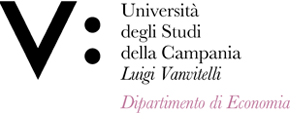Maria Rosaria VIVIANO
Insegnamento di FISCALITA' DELL'ECONOMIA CIRCOLARE
Corso di laurea magistrale in ECONOMIA E MANAGEMENT
SSD: IUS/12
CFU: 8,00
ORE PER UNITÀ DIDATTICA: 56,00
Periodo di Erogazione: Secondo Semestre
Italiano
| Lingua di insegnamento | ITALIANO |
| Contenuti | Lo studio del diritto tributario collegato alla materia ambientale e da queste nozioni si affronta l’economia |
| Testi di riferimento | Antonio Uricchhio Circular economy and environmental Taxation |
| Obiettivi formativi | Il corso si prefigge di fornire allo studente i criteri di valutazione della tassazione ambientale e della specifica economia circolare che consentono di tutela e proteggere l’ambiente, la salute umana ed il creato. |
| Prerequisiti | Nozioni di base del diritto tributario |
| Metodologie didattiche | Lezioni frontali e approfondimenti con gruppi di studio |
| Metodi di valutazione | L’esame orale è previsto al termine del corso per valutare il livello di conoscenze acquisite dallo studente. In ogni caso durante il corso sono previste dei seminari di approfondimento con case studies. |
| Altre informazioni | Lo studio della materiale può essere funzionale allo stimolo di creare una sensibilità verso la tutela dell’ ambiente e nel contempo ad evitare sprechi e danneggiamento delle risorse naturali |
| Programma del corso | - Economia e fiscalità circolare- - l’ ambiente e l’economia circolare nel diritto tributario |
English
| Teaching language | Italian |
| Contents | The study of tax law connected to environmental matters and from these notions the economy is addressed. The issue of advantageous taxation for forms of circular economy is introduced, suggesting new promotional tools. |
| Textbook and course materials | Antonio URICCHIO, Circular economy and environmental Taxation. |
| Course objectives | The course aims to provide the student with the evaluation criteria of environmental taxation and the specific circular economy that allow for the protection and protection of the environment, human health and creation. |
| Prerequisites | Basic notions of tax law |
| Teaching methods | Lectures and insights with study groups |
| Evaluation methods | The oral exam is scheduled at the end of the course to evaluate the level of knowledge acquired by the student. In any case, in-depth seminars with case studies are scheduled during the course. |
| Other information | The study of the material can be functional to the stimulus to create a sensitivity towards the protection of the environment and at the same time to avoid waste and damage to natural resources |
| Course Syllabus | - Circular economy and taxation- - the environment and the circular economy in tax law |








